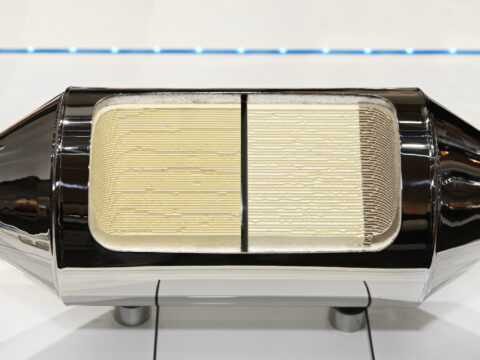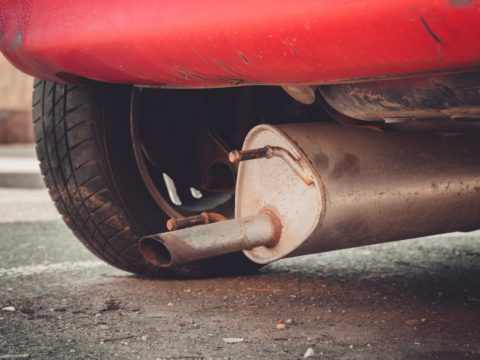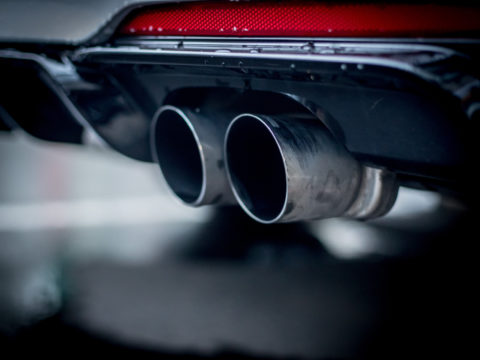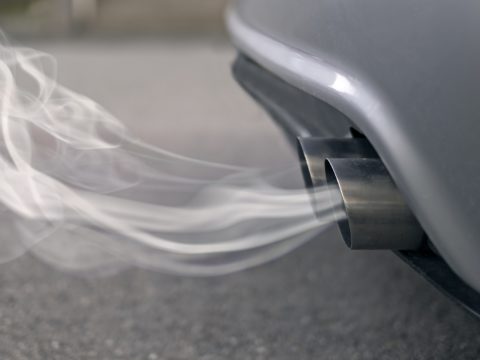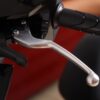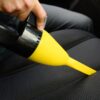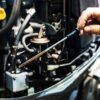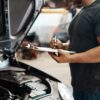Ford is one of the leading automakers in the United States, with more than half of all full-size trucks crafted by the manufacturers.
With so many Ford trucks on the road, you may want to know the scrap price of the Ford F150’s catalytic converter.
If you’re curious to know about the components of the vehicle, we’re here to help. Read on to learn more!
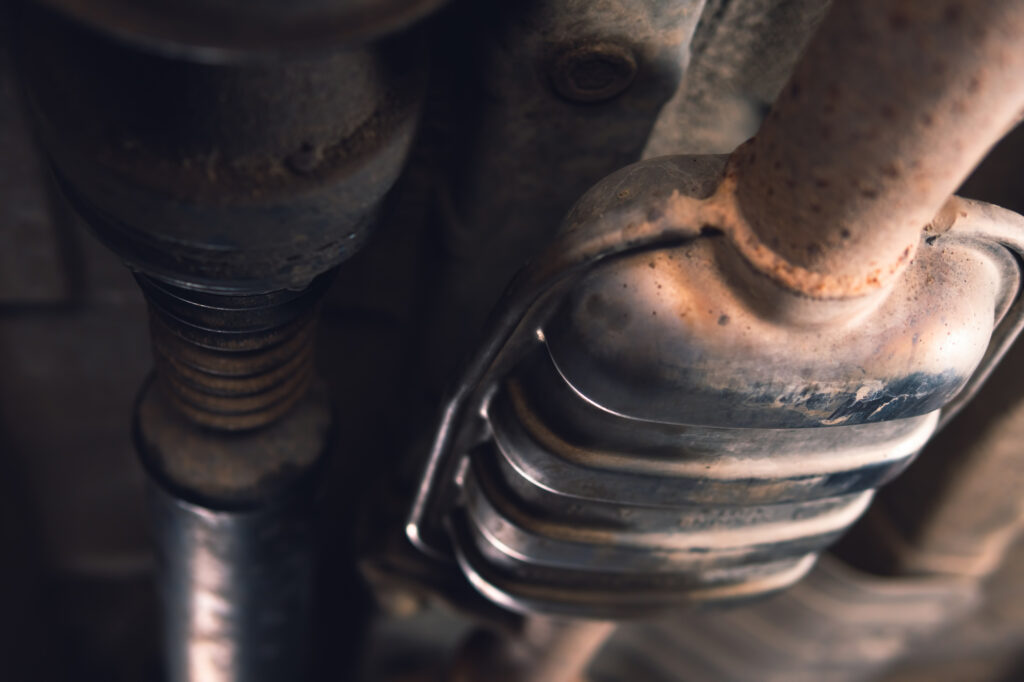
Contents
How Much Is a Ford F150 Catalytic Converter Worth Scrap Price?
The scrap price of a Ford F150’s catalytic converter can vary depending on several traits. The age of the vehicle can lower the price, while any damage can also impact the price. Other scrap places may pay more or less compared to others.
In general, many organizations will pay between $200 and $750. Much of this price comes from the platinum in the converter, so an in-tact or newer F150 catalytic converter will scrap for more.
How To Tell What Ford Catalytic Converter You Have
How can you know which Ford catalytic converter you have? You can narrow this down slightly depending on the model of your truck. From there, consider these four strategies to narrow down which converter you have.
Vehicle Age
If you’re familiar with the age of your vehicle, you can take a better guess at what kind of converter you have. Some converters are specific to vehicles of a certain age. A twenty-year-old F150 may not have the same converter as a modern truck, for example.
Research what converter you should expect to find in your F150 based on its year. However, this won’t always give a correct answer due to repairs and replacements.
Serial Number
The best way to identify your catalytic converter is to check its serial number. Catalytic converters all leave the manufacturer with a serial number. These serials are also specific to manufacturers and factories, helping you track who made the converter, when, and where.
Manufacturer Logo
Because the serial number is specific to a manufacturer, knowing who made the converter is crucial. If you’re pulling it straight out of an F150, you can rest assured that the converter is Ford-manufactured.
But if you’re in a scrap yard searching for a converter, you won’t have such information. Look to see if you can find the logo imprinted in the converter. Manufacturers like Audi and Volkswagen often imprint their logos here.
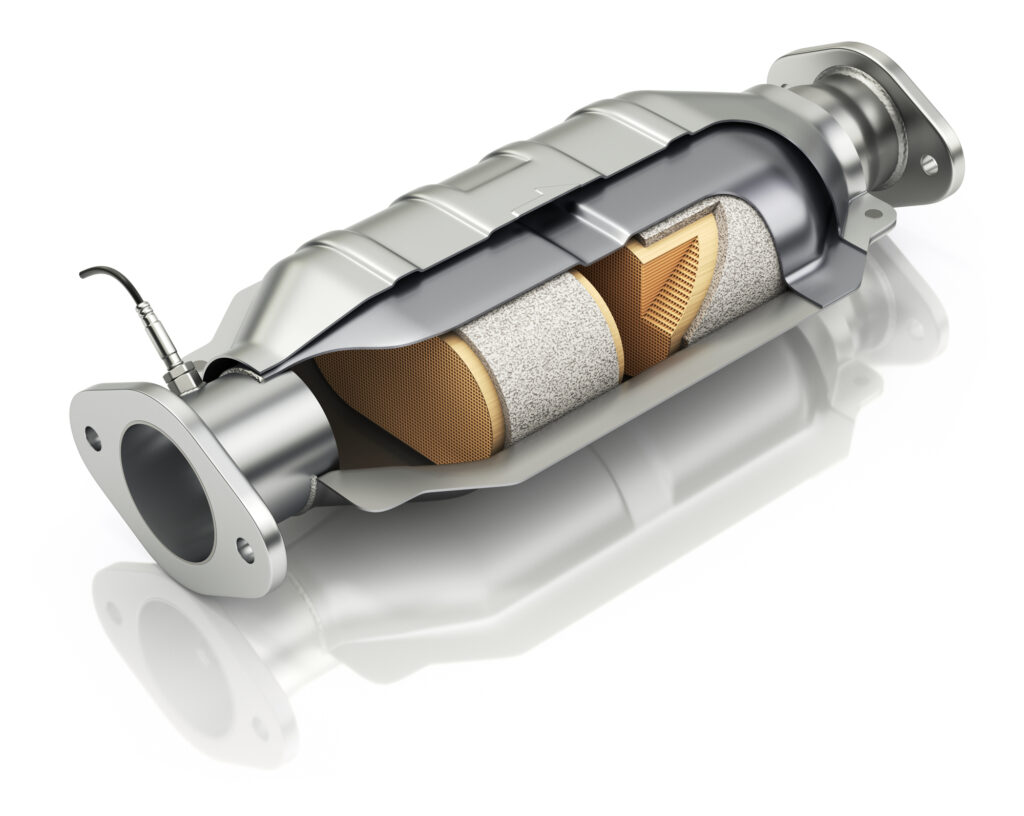
Identifying Sequences
Once you find the serial number, you can identify which manufacturer created it without research. This is because many companies will use identifiers in this serial number.
For example, General Motors and Chevrolet often start their serial numbers with “126” or “127.” There are others that they’ll use, so you’ll still want to search for the serial number to make sure. It’s a great way to quickly identify a manufacturer before you dive deeper into research.
How Do You Check a Catalytic Converter Serial Number?
Checking the serial number of a catalytic converter is simple, but can be tricky. For starters, if a converter is damaged, it may be difficult to read the serial number. Rust, corrosion, and damage can cause the serial number to become obscured or scraped off.
Search the catalytic converter’s metal body. This is easiest if it’s no longer attached to a car, but if you’re able to get under your F150, you shouldn’t have difficulty finding the number. The number should be stamped directly onto the metal, so bring a flashlight and search!
Once it’s found, you can search the manufacturer’s database. Doing so can help you track the manufacturing information of the converter and help prove it’s your converter that you’re scrapping.
How Many Catalytic Converters Does a Ford F150 Have?
The Ford F150 has two catalytic converters. The dual-system catalytic converters work to keep the truck within pollution standards. One is located in the front of the car and the second is at the back of the vehicle.
What Ford Catalytic Converters Are Worth the Most?
The Ford F250 is the most valuable converter in Ford’s lineup. They’re also one of the most valuable among all catalytic converters. This is because they have a much higher amount of platinum than most others and are typically newer.
However, the same issues with price are notable here. These converters may dip in price depending on age and damage. Because of this, an F250’s converter may not always be worth more than an F150’s.
Who Buys Catalytic Converters?
The best place to sell your converter is your local scrap yard or car salvage yard. These salvage yards will often resell these parts used to other customers, making them great items to keep on hand.
Salvage yards will also have recycling incentives that converters can help reach. Because of this, they’re often high-demand components that scrap yards will readily buy.
Past these options, vehicle enthusiasts may buy them for their uses. Others may want them for vehicle repair or upgrades. Check your local social media pages or listings to see if anyone needs to buy your F150 catalytic converter.
Is Scrapping a Catalytic Converter Worth It?
Yes! If you’re getting rid of your vehicle, there’s no reason not to scrap every component. Your catalytic converter can go for hundreds of dollars, making them one of the best components to scrap.
That said, only scrap your converter if you’re getting rid of your vehicle. If you’re scrapping it to raise quick cash but still need your vehicle, you’re making your vehicle impossible to drive.
If you don’t want to deal with the hassle of selling it, taking it to a salvage yard is often the quickest. They’re almost always in the market for converters and will give a fair, even price for the item.
Scrapping Your Ford F150 Catalytic Converter
Scrapping your Ford F150 catalytic converter is a great way to raise a few hundred dollars. Make sure you can identify the converter so that you’re getting a fair offer when scrapping or selling the item.
For more automotive information, be sure to browse the rest of our extensive site to learn more!

